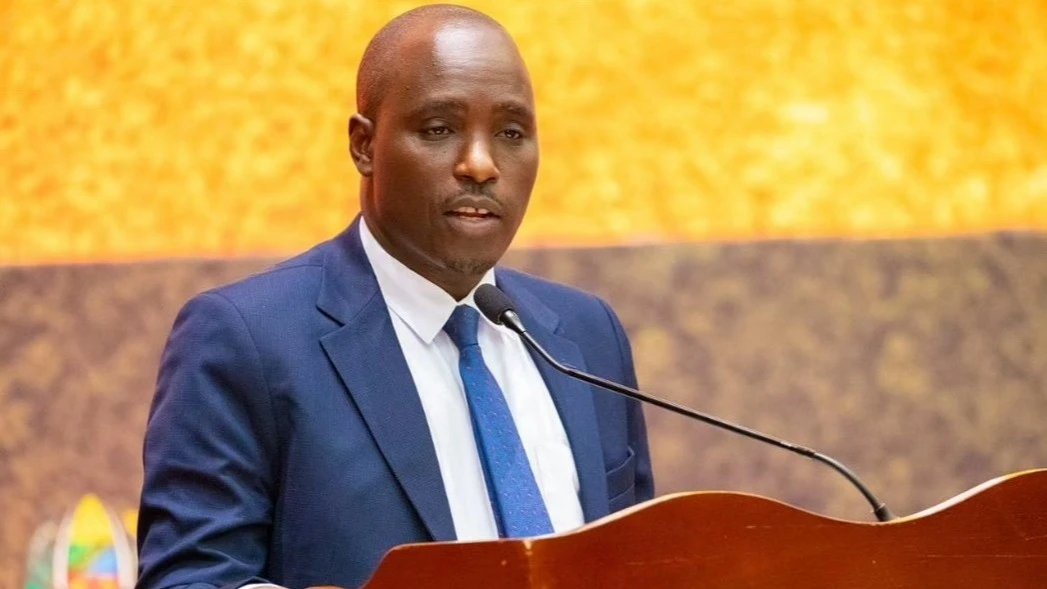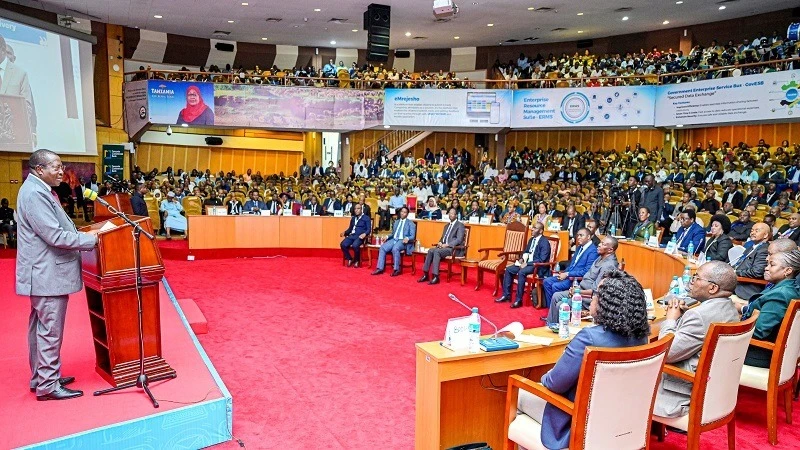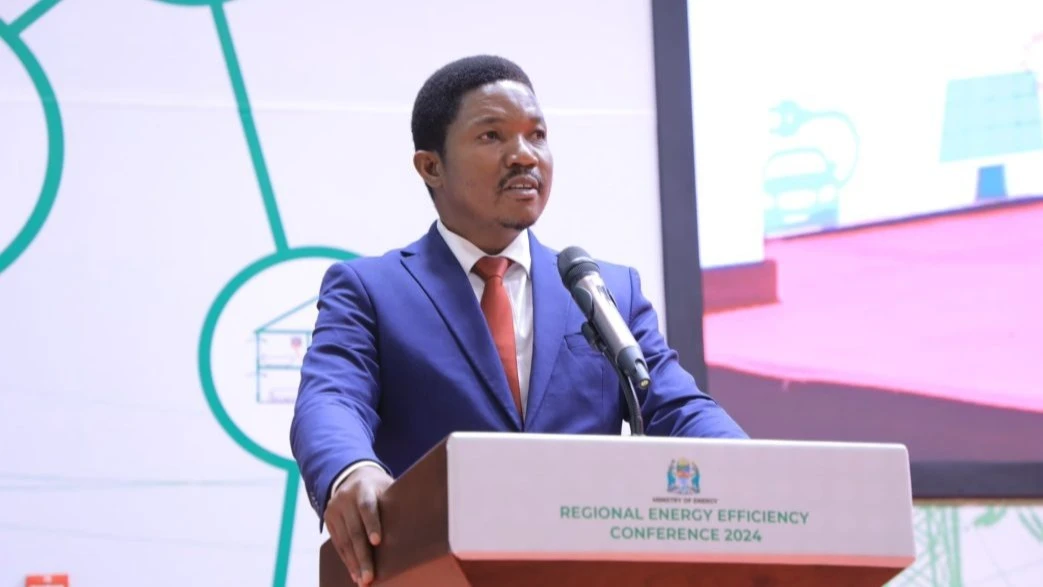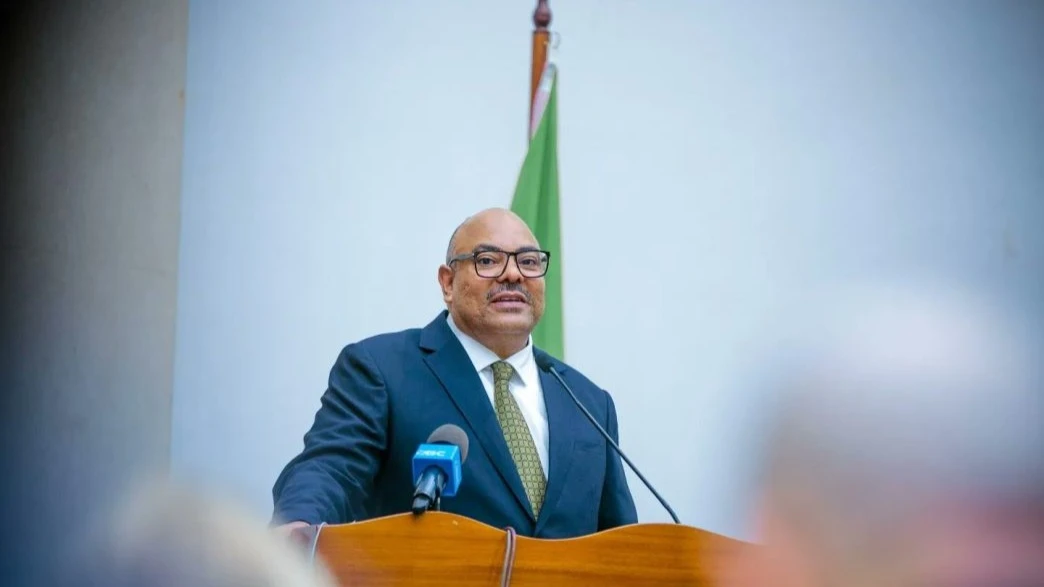AGRA renews its commitment to addressing climate change
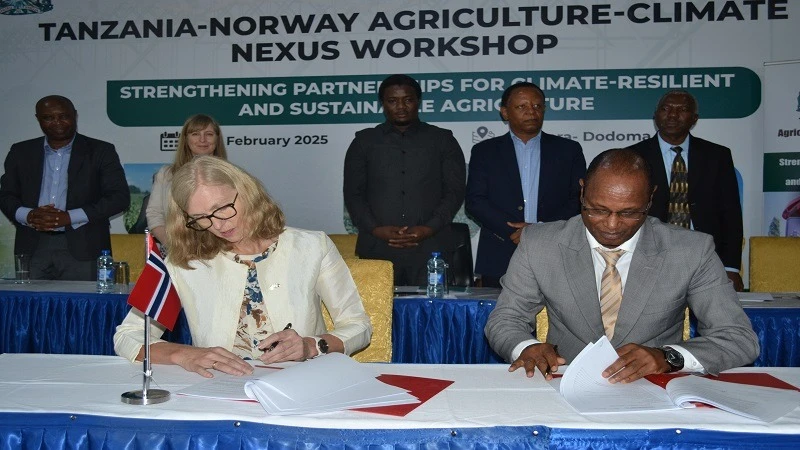
AGRA and its partners the Royal Norwegian Embassy, the Ministry of Agriculture and the Agriculture Transformation Office (ATO), have renewed their commitment to addressing climate change at the Agriculture- Climate Nexus Workshop.
Discussions at this workshop focused on strengthening partnerships for climate-resilient and sustainable agriculture.
AGRA signed a new partnership agreement with Norway aiming to support Tanzania in accelerating the implementation of the 2025 Agricultural Transformation Master Plan (AMP).
The overall objective of this 3-year initiative is to enhance the coordination and commercialization of smallholder agriculture for inclusive economic growth, improved food security, and poverty reduction.
It specifically focuses on supporting Tanzania’s ATO in rolling out the Agricultural Growth Corridors of Tanzania (AGCOT), building on learnings from the SAGCOT model.
According to the 2025 AMP, there are four primary constraints which would hinder the implementation and scaling of the AGCOT programme including regulatory constraints to investment and commercialization; limited capacity of implementing institutions, lack of specific modalities/capacities to facilitate investment partnerships, and environmental risks.
As such, the new partnership program was designed to achieve three main outcomes including enhanced coordination and implementation capacities of public and private sector agencies/platforms within the framework of ATO; improved enabling and regulatory environment for sector expansion, inclusive functional markets and trade for women and youth; and increased investments by private and development partners along the select AGCOT corridors and value chains.
Speaking during the signing ceremony, the Deputy Minister of Agriculture, David Silinde (MP), emphasized the Government of Tanzania’s commitment to scaling the SAGCOT model across all other corridors in the country through the AGCOT.
The Norwegian Ambassador in Tanzania, Her Excellency Tone Tinnes, recalled that this initiative fits in the broader agreements that was signed in 2023 between the two Governments, focusing on increasing agricultural productivity, investment in agribusiness, and strengthening agricultural research and technology.
She also recalled that the Norwegian Mission has been supporting Tanzania’s agricultural sector for over 50 years, and recognized that agriculture is a crucial sector for Tanzania, as it plays a vital role in ensuring food security and is increasingly becoming a major driver of job creation.
Vianey Rweyendela, the Country Director of AGRA in Tanzania, highlighted that AGRA will provide advisory and implementation support to the key stakeholders involved in the program implementation, including ATO, SAGCOT, COPRA, TARI, as well as other public and private sector actors.
AGRA shall also support the design of AGCOT flagship program and build capacity for its implementation, including the mobilization of resources, intervention modalities, advocacy and delivery mechanisms and institutional arrangements.
Besides, AGRA will leverage its ongoing systems-level investments to accelerate scaling of the AGCOT model.
The workshop also involved stakeholders from other sectors such as environment, trade, conservation and natural resources management. As such, it served as a launchpad for other new projects and initiatives, including a new strategy funded by Norway for SAGCOT and a new agreement between Norway and the IUCN.
Overall, the workshop also aligns with the goals of the Comprehensive Africa Agriculture Development Programme (CAADP), particularly in improving natural resources management, rural infrastructure, market access and trade capacities, and enhancing food security and disaster risk management.
The Agriculture-Climate Nexus Workshop represents a significant step towards achieving sustainable agricultural transformation in Tanzania.
By bringing together key stakeholders, this event will pave the way for a more resilient and prosperous agricultural sector that benefits all Tanzanians.
The Tanzanian agriculture sector, while contributing nearly one-third of the country's GDP and employing over two-thirds of the population, is yet to fully realize its potential for inclusive growth.
Top Headlines
© 2025 IPPMEDIA.COM. ALL RIGHTS RESERVED











